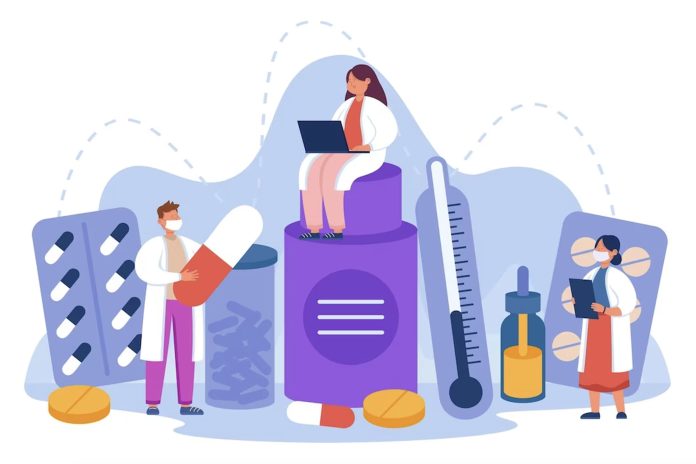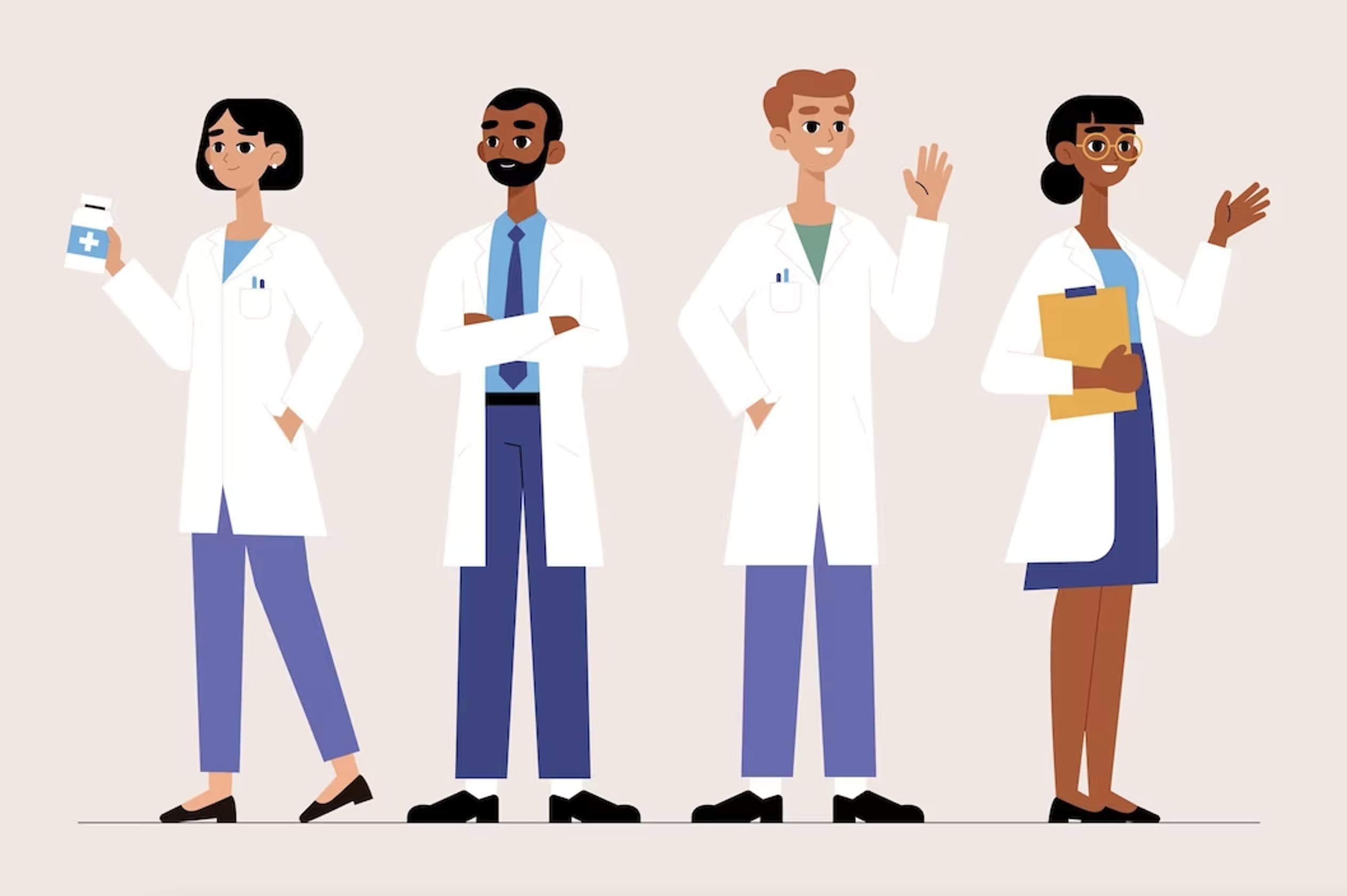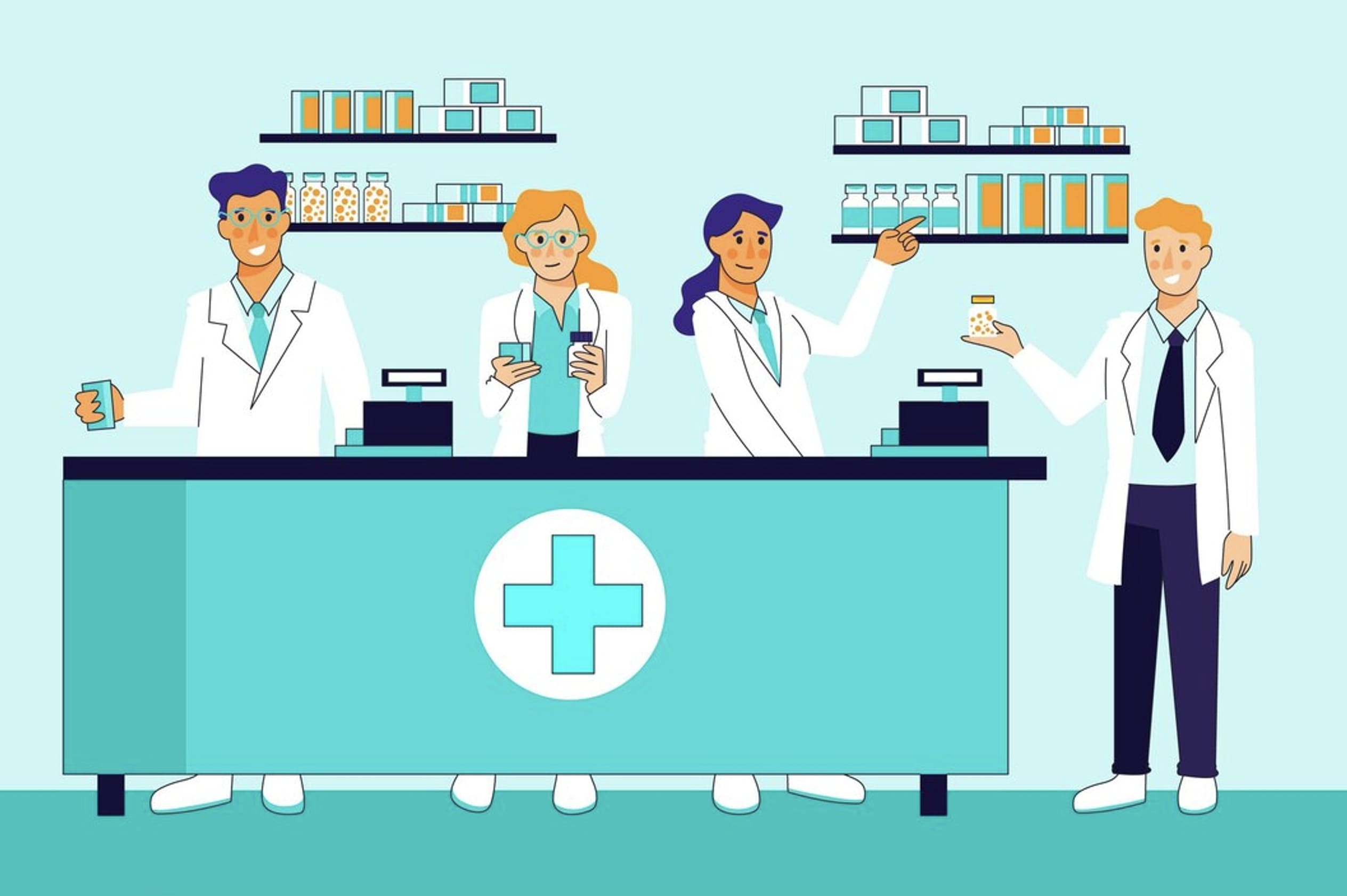Pharmacists, physicians, dentists, CRTs, and RRTs are all “doctors” in layman’s terms. All the professionals working in a hospital have been called doctors by patients and their attendants for years, except for nurses. Many people do not understand the difference between each specialty and are only concerned with proper treatment. On the other hand, a few do not mind calling all of them doctors as they contribute to saving lives in some way.
Yet, the debate of whether pharmacists can be called doctors is old.
Physicians often protest and question why pharmacists are called doctors. They are of the point of view that they spend more time specializing. Thus, they are doctors. At the same time, pharmacists only obtain a 5-year degree without any further advancement. While a huge number of pharmacists take an M-Phil degree afterward, other healthcare professionals do not think pharmacists should be called doctors.
So, are pharmacists called doctors?
Yes, pharmacists can be called doctors and use the prefix “Dr.” with their names. However, registered pharmacists in most countries prefer using “RPh.” representing that they are registered with the relevant authority.
When are Pharmacists Called Doctors?
Though pharmacists are generally referred to as doctors, certain situations in particular countries require you to use a specific Prefix.
For example, pharmacists in the UK use the title Dr. sub, a common way to address physicians. Yet, in the US, PhDs, dentists, veterinarians, and pharmacists can add Doctor to their names.
Furthermore, pharmacy faculty in academia may be called Dr. (insert name), whereas they are generally not referred to as doctors in a healthcare setting.
A few regions allow pharmacists to be called doctors only when they immediately specify their profession to the patient.
Some countries authorize pharmacists to call doctors only if they comply with their criteria:
- The pharmacist must have a 5-year Pharm-D degree, not a four-year B-Pharm degree.
- They have covered 70 courses during their five years of education.
- They must have a legal license to practice medicine as a community or clinical pharmacist.
- The pharmacist has enough knowledge of medicines, including the doses, administration, dosage routes, and complications.
Are Pharmacists and Doctors the Same?
As mentioned earlier, pharmacists and doctors are not the same. Doctors are general or specialized physicians that diagnose diseases and disorders, and provide adequate treatment. Alternatively, pharmacists do not have the same amount of information regarding the body anatomy. Instead, they are adept in offering the best medical solution to the given diagnosis. They understand the mechanism of action of drugs and can thus offer the best treatment to the patients. Doctors are skilled in performing surgery which pharmacists cannot.
Difference between Doctor and Pharmacist
What is a Doctor?
Physicians are typically referred to as doctors. Clinical, hospital, or community pharmacists are also called doctors; however, they are different. Any medical practitioner or physician is a doctor. They are responsible for diagnosing and providing an adequate medical regimen. They help patients with physical and mental health issues. Physicians are involved in communicating directly with the patients. Their authority to carry out surgical procedures sets doctors apart from other professions.
Role of a Doctor
Doctors perform various roles in a hospital or clinic setting per need. Some of the most prominent roles of doctors include:
Diagnosis and Prescription
One of the primary roles of a doctor in a doctor-patient relationship is to provide a proper diagnosis of the disease. It includes taking the history and running important tests to find out the underlying cause. Following the diagnosis, the doctor prescribes for the patient that they get filled out from the pharmacy.
Performing Surgeries
Having the expertise and authority to perform surgery on the patient is another unique characteristic of doctors. They may also give IVs if needed or perform surgery. While any surgeon can perform a few basic procedures, it takes specialized doctors to carry out major surgery. For example, only a gynecologist can perform a C-section, while a cardiac surgeon can insert a stent into a patient’s heart.
Communicating with Other Healthcare Professionals
Though all healthcare professionals work together, the main responsibility falls on the shoulder of physicians. They inquire about the patient’s progress and take details from the nurse and pharmacist where required. The doctor recommends procedures to be performed by other healthcare professionals and may ask for updates.
What is a Pharmacist?
Pharmacists, also known as doctors of drugs, are a critical element of the healthcare system. They ensure the rational use of medication among patients. Pharmacists dispense medication and manage drugs. They also ensure that the patients have all important information regarding the administration of drugs. Some pharmacists with enough knowledge may also prescribe medication.
What do Pharmacists do?
Pharmacists work with physicians and other healthcare workers to provide high-quality care to patients. The roles of a pharmacist include:
Dispensing Drugs
Pharmacists dispense drugs and refill prescriptions in clinics and hospitals. They ensure that the right medication is given to the patient for the diagnosed disease. Pharmacists educate the patients on the given drug, its dose, frequency, and side effects. Sometimes pharmacists may also be allowed to administer vaccinations.
Patient Counseling
When pharmacists dispense drugs to patients, they provide them with details about them. Besides the dose, frequency, and side effects, pharmacists also mention interactions and contraindications. It is made sure that the prescribed medicine will not cause any harm to the patient.
Quality Assurance
Many hospitals have pharmacists that ensure the quality of care provided to the patients. They talk to patients on rounds and ask them about drug administration. It helps understand if the patients are facing difficulties or getting proper care.
Doctor Vs. Pharmacist Salary
Doctors and pharmacists do not earn the same amount due to their differences in expertise. The salary of doctors may also vary depending on their specialization. According to Aussiereporter, Anesthesiologists are the most-highly paid doctors. Pharmacists in the US earn a median salary of $246,600, while pharmacists make around $145,500.
The Bottom Line
“Are pharmacists called doctors” has been a topic of discussion among healthcare professionals now. The simple answer is that yes, pharmacists can be doctors. However, the criteria or conditions may vary from country to country. For example, various healthcare professionals can be called doctors in the United States of America. Yet, physicians are known as doctors in the United Kingdom. A few places allow pharmacists to be called doctors when they immediately mention their profession to the patient.
FAQs
What is the proper title for pharmacist?
In the past, all healthcare professionals were called doctors. But, now, it is emphasized to use specific titles for every profession. Thus, Registered Pharmacist or RPh is the right title for pharmacists.
What is PharmD vs. pharmacist?
PharmD and pharmacist are nothing different from one another. PharmD is the professional education required to become a pharmacist.
What is PharmD vs. Ph.D. salary?
If you read business blogs, you’ll know that pharmacists in the US earn a median salary of $145,500. On the other hand, Ph.D. researchers make $124,045 to $156,773 salary.
What is the correct pharmacist title before name?
Some pharmacists use RPh to indicate that they are registered pharmacists. At the same time, others may use a Dr. before their name.
What do doctors think of pharmacists?
Most doctors value pharmacists as they help them provide quality healthcare to the patient. While the discussion of “are pharmacists called doctors” stays, physicians and doctors work hand in hand for the welfare of patients.
Disclaimer: This article contains sponsored marketing content. It is intended for promotional purposes and should not be considered as an endorsement or recommendation by our website. Readers are encouraged to conduct their own research and exercise their own judgment before making any decisions based on the information provided in this article.






































































